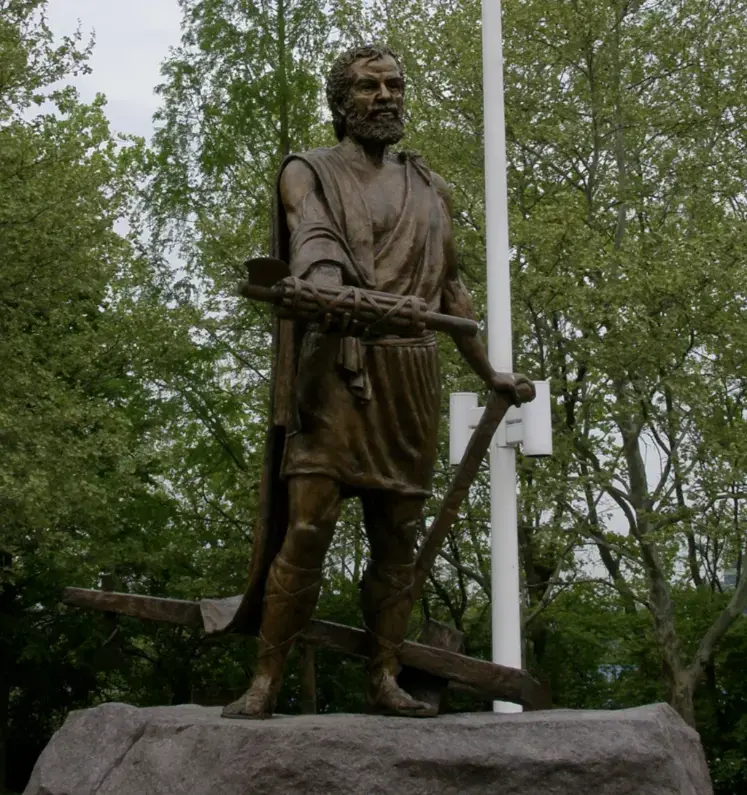Lucius Quinctius Cincinnatus

Lucius Quinctius Cincinnatus was a Roman patrician, statesman, and military leader during the early Roman Republic who later became celebrated as a model of Roman virtue—particularly civic virtue—by the late Republic era. While modern historians question certain details of Cincinnatus's story as portrayed in Livy's History of Rome and other sources, it's generally accepted that he was a historical figure who served as suffect consul in 460 BC and as dictator in 458 BC, with a possible second dictatorship in 439 BC. His most renowned story takes place after he had retired to a simple farming life.
When Roman forces struggled against the Aequi, Cincinnatus was called from his plow to assume emergency dictatorial powers over Rome. After achieving a decisive victory in just sixteen days, he immediately relinquished his authority and returned to his farm. Cincinnatus's swift success and voluntary resignation of near-absolute power (traditionally dated to 458 BC) has frequently been cited as exemplifying selfless leadership, civic virtue, and dedication to the common good.
His story also represents agrarian virtues such as humility, modesty, and diligence. Despite these positive attributes, Cincinnatus opposed extending rights to the plebeians (common citizens). His son, Caeso Quinctius, reportedly drove many plebeians into poverty by violently opposing their campaign for a written legal code with equal enforcement.


